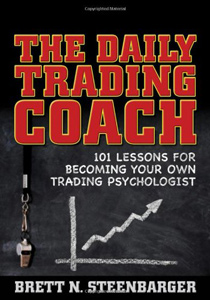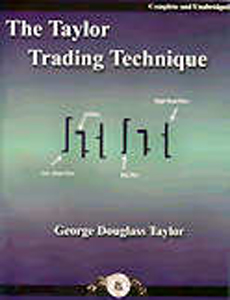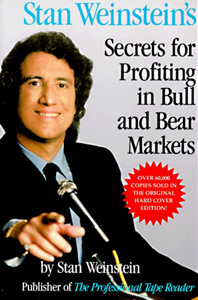What does it mean to invest in shares?
Buying a share means exactly that – buying a share of a company. As a shareholder you are actually a part owner of that company. This means that you are entitled to a portion of any profit that company makes, but unlike property investment, you are not responsible for any maintenance, upkeep or other costs associated with your investment. Shares are a highly liquid asset. This means that is relatively easy to buy and sell shares. After all, you only need to wait three business days after you have sold the shares to receive the money from that sale which is a lot quicker than property.
How easy is it to invest in shares?
There are two ways to invest in shares, both of which are easy. Typically, people buy their shares in the sharemarket through a broker. After becoming a client of that broker, you can instruct them to purchase shares for you on the market. Or do it online if you want. The other way to invest in shares is through an initial public offering (or IPO). Private companies make the decision, for a variety of reasons, that they would like to “list” on the sharemarket. This means that you can buy shares in that company before it starts to trade on the sharemarket.
So, what is a share portfolio?
Many people have a share portfolio without even realizing it! People who have a share portfolio simply own shares in more than one company. If you own shares in Telstra and Coles Myer – you have a share portfolio. If you own shares in Insurance Australia Group (IAG) an National Australia Bank – you have a share portfolio. Even if you only own a few shares in each company, you still have a share portfolio.
What would be the minimum amount of shares worth investing in?
Generally, an investor should be aiming to invest between $5000 an $10,000 in three or more shares. This way you are achieving some diversification because all your money is not dependant on one company. And, if those shares are in different sectors (financial services, materials and media are examples of different sector) – you are achieving even better diversification. Of course, not everyone has $5000 to start off with, so you could start with $1000 and add to your investment over time.
How can I figure out what to buy, and how do I keep track of my shares once I buy them?
Researching and keeping track of your share portfolio has become so much easier over the past five years. The internet is a fantastic resource for information. Most good brokers have free factual research available for their clients online, however, sometimes you can get access to advanced and more analytical research at minimal costs. As mentioned elsewhere, the CommSec website has a great free online research area and portfolio tracking tools for clients.
What are blue chip shares and are they better?
The term “blue chip share” is sharemarket jargon that describes very large companies that are generally well known brand names and have been around for a while, have a history of performing well and return good profits to their shareholders. As these companies have a history of performing well, some would say that they are a safer investment than other companies. However, whenever you invest on the sharemarket it’s good to do as much research as you can so that you are confident with any investment, whether they are a blue chip company or not.
What makes the share price go up and down?
Supply and demand for shares causes the share price to go up and down, as can the economy and company performance. If more people want to buy shares in a company rather than sell, representing a greater demand, then the share price will go up. On the other hand, if there is a greater supply than demand, more people wanting to sell than buy, then the share price goes down. What causes people to want to buy or sell shares varies greatly. Researching and keeping up to date with developments to do with the shares or companies you may be interested in will help you determine these causes.
What is a dividend and when is it paid?
Typically, companies announce their profits bi-annually. This means that every six months they determine how profitable they have been and announce this to the market. The company may then decide that they can distribute some of this profit to the shareholders. (Companies do not tend to give out all of their profit, as they may need to reinvest this money back in the company.) This distribution of the profit comes in the form of a dividend per share. That means that if you own 100 shares in company XYZ and the dividend announced was 50 cents per share, you will receive a $50 dividend for that half year.
How do I find out about upcoming IPO floats?
The ASX list upcoming IPOs on their website. The site has information about the companies listing including date and time. Most good brokers will also have a listing of IPOs that they can give you access to. If you think that you would be interested in investing in IPOs, make sure you seek out a broker that can provide a diverse range of new listings.
What is an average brokerage fee and what can an investor expect for their money?
Brokerage fees vary widely and generally depend on the type of stockbroker you are using to invest. There are two types of broker – a full service broker (advisory) and a discount broker (non-advisory). A full-service broker will provide you with personalized service and investment advice on which stocks to trade. They tend to be used by the very wealthy who typically have more complex financial needs, encompassing both wealth growth and protection. Because they offer advice, a full-service broker usually charge more than discount brokers, generally from 1.5 per cent upwards of the transaction value of the trade. A discount broker will execute your trades but will not provide you with personalized advice. As a result, brokerage charges are lower. Generally from $20 for each transaction depending on the value of the trade. Discount brokers generally operate via the telephone, internet or both. Many online or discount brokers such as CommSec also offers company research, price alerts, and dynamic market data to help investors choose which shares to trade.
Lot of people think the sharemarket can be risky. What is the best way to minimize that risk?
Investing money anywhere can be risky. The idea of risk verses the reward of investment is a very important principle to consider when making an investment decision. Theoretically, the higher the risk, the higher the possible return so you need to consider for yourself how much risk you are willing to take, for that possible return. A simple way of minimizing risk in the sharemarket is diversification. By investing in a number of different companies you spread the risk, and the likelihood of loss in value, more widely. For example, if you had a share portfolio with six different companies, the possibility of your overall portfolio losing value is less than someone who only invested in one company.
How and where do I go to learn more about the sharemarket?
The ASX website has a range of free online classes for beginners through to advanced, covering shares and other methods of investment. Face-to-face classes and a monthly newsletter are also available. There are also many books that cover sharemarket basics at your local library or bookshop.
Read more Frequently Asked Questions.





